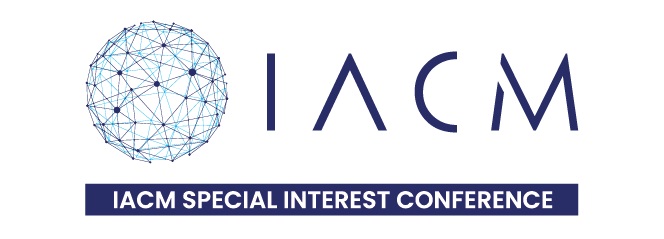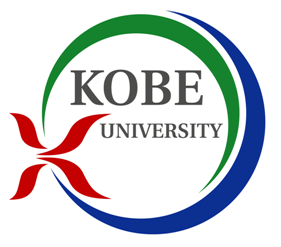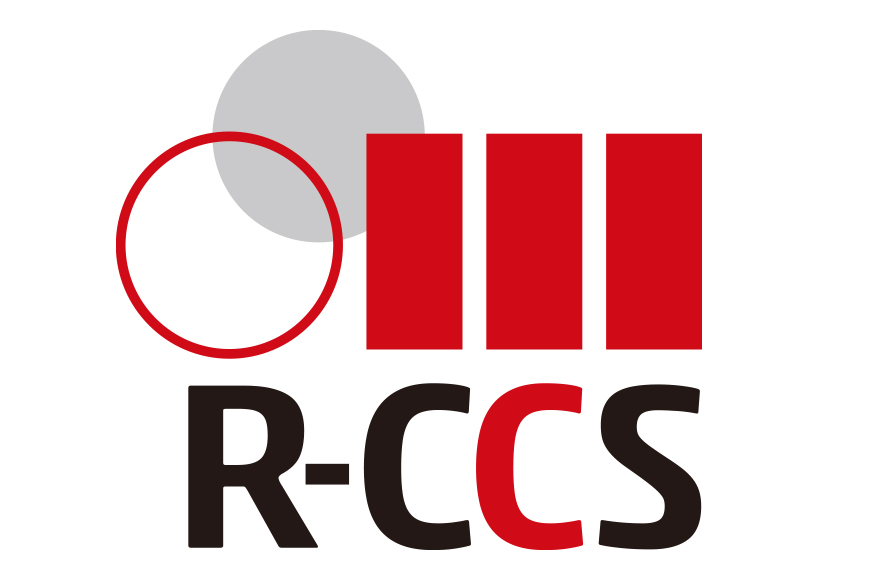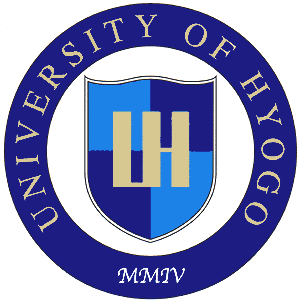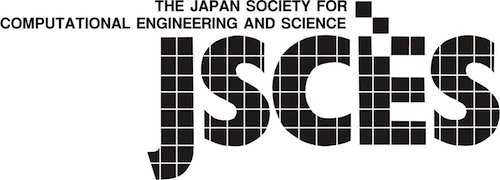Plenary Lectures
Prof. YuanTong Gu (Queensland University of Technology)

Physics-informed Machine Learning: a powerful computer modelling framework for engineering and science
In recent years, physics-informed neural networks (PINNs) have revolutionized the application of machine learning to solving partial differential equations (PDEs). By combining data-driven and physics-based models, PINNs retain the strengths of both approaches, showing exceptional potential in addressing a wide range of complex problems. As a result, they have garnered increasing attention in many applications, particularly for problems with strong nonlinearities. The PINN has been becoming a game-changer for computer modelling and simulation for engineering and science.
This talk will first review the latest advancements in the use of PINNs for mechanics, including solid mechanics, nonlinear mechanics, fracture analysis, structural optimization, fluid mechanics, and more. Next, the challenges in applying PINNs to mechanics will be discussed. Finally, recent research from the speaker’s group will be presented, covering topics such as the new neural network architecture in PINN for mechanics, PINN-based structural topology optimization, food drying modelling, dynamic and nonlinear problem solving, and inverse problems. It has proven that physics-informed machine learning will be the new generation of a computer modelling framework for mechanics.
Prof. Jung-Wuk Hong (Korea Advanced Institute of Science and Technology)

Recent Advances in Nonlocal Methods for Computational Mechanics
This plenary talk presents recent advancements in nonlocal methods for computational mechanics, emphasizing their pivotal role in addressing challenges such as fracture, damage, and multiscale interactions in which classical continuum-based methodologies often encounter limitations. Nonlocal methods, which incorporate interactions within a specific range, provide a robust alternative by capturing complex behaviors in materials with discontinuities and intricate microstructures. The talk begins with an overview of current nonlocal approaches classified as either mesh-based or meshless nonlocal methods and then focuses on the peridynamics as one of the notable recent methodologies. Peridynamics provides an innovative framework for simulating damage and fracture mechanics without reliance on traditional differential operators, enabling more accurate modeling of damage and discontinuities. By exploring the latest developments in peridynamic theory and its applications across engineering fields, this talk aims to inspire further advances in computational mechanics, particularly in nonlocal methodologies.
Prof. Michael Kaliske (Technische Universität Dresden)
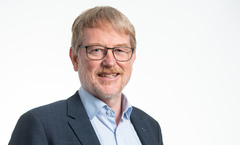
Theoretical-numerical Approaches to Damage and Fracture Analysis of Structures
The design of resilient structures depends on a comprehensive understanding of structural behavior through realistic models of material damage, fracture processes, and failure to evaluate complex load scenarios, optimize repair intervals, and predict remaining lifetimes. This plenary talk explores key aspects of nonlocal damage models applied to multiaxial loading scenarios, emphasizing the mechanisms of induced anisotropy, which is inherent in concrete. Applications to discretization techniques, including the Finite Element Method (FEM) and the Material Point Method (MPM), illustrate the versatility and integration of these material models across different computational frameworks.
Another focus is on recent energy-based fracture formulations, discussing their potential in addressing complex fracture processes such as crack branching, multi-physical couplings, and impact loads. Additionally, we introduce an algorithm for calculating effective limit criteria for composites and multiscale materials. Its computational efficiency enables the exploration of the structural design space and facilitates structural optimization. The presented models and frameworks are demonstrated through diverse examples, spanning concrete structures, wooden artwork, pavement systems, and glass components.
Semi-Plenary Lectures
Prof. Leszek Demkowicz (The University of Texas at Austin)

DPG Method on a New Road to Nonlinear Problems
2025 marks the 16th anniversary of our first foundational papers on the Discontinuous Petrov- Galerkin method with Optimal Test Functions, in short the DPG method. In the talk, I will attempt to present DPG fundamentals for linear problems illustrated with a few numerical examples, and an outlook at the generalization of the DPG methodology to nonlinear problems represented by a nonlinear elasticity problem.
Prof. Tsuyoshi Ichimura (The University of Tokyo)
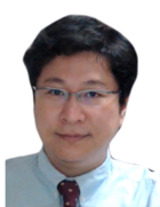
Earthquake simulation enhanced by high-performance computational science
With the accumulation of measurement data, there is an increasing need for analysis using high fidelity models. The huge analysis cost associated with these models is a common problem in many fields. Such analysis will often not be possible simply by using conventional methods and a supercomputer, so there is a need to develop computer architecture-aware algorithms that can take advantage of massively parallel supercomputers. On the other hand, the integration with data science (e.g. neural networks) is being promoted to improve the efficiency of analysis, but accuracy assurance is often an issue. This talk will present recent computational science algorithms with high performance computing (including integrated algorithms with data science that can guarantee accuracy to further improve the efficiency of analysis) that are suitable for modern computer systems/architectures to efficiently solve large-scale nonlinear/linear, dynamic/static problems. This presentation will show implementations using the finite element method with an application example for earthquake problems, but it is expected to be applied and extended to other similar problems.
Prof. Kiao Inthavong (RMIT University)
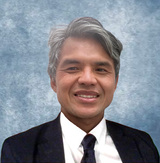
Revealing respiratory physiology defence of inhaled airborne particles through multiphase flow simulations
The respiratory system is a remarkable structure with complex physiological functions that sustain life autonomously by delivering oxygen to the body and expelling carbon dioxide. On average, a person takes about 20,000 to 25,000 breaths per day, equating to approximately 10,000 to 12,500 liters of air. Hidden within this system are evolutionary anatomical features that serve as defense mechanisms, protecting us from airborne pollutants and viruses. Recent advancements in radiology have enabled multiphase flow simulations within computational fluid dynamics (CFD) for respiratory models. In this talk, I will present recent simulation outcomes that reveal the intricate and evolutionary adaptations of the airways that serve to protect us. This includes an analysis of the risks associated with exposure to airborne pollutants such as pollen, silica, asbestos, and viruses (e.g., COVID-19). Furthermore, I will explain how certain sub-anatomies serve extended, hidden functions in addition to their traditional roles—for instance, the larynx does more than just enable vocalization. The talk will also explore how the airway's shape can be leveraged to enhance drug delivery, offering new strategies to combat systemic diseases. Finally, the talk will conclude with future work that aims to enable instant diagnosis directly from a visit to the radiology center.
Prof. Artem Korobenko (University of Calgary)
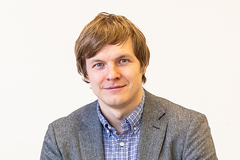
Advances in Variational Multiscale Methods for Optimizing Wind and Marine Energy Systems
Accelerating the deployment and scientific advancement of wind and marine energy systems requires the development of predictive multi-fidelity numerical tools integrated into their design, operation, and management. In this talk, I will present recent advances in variational multiscale (VMS) methods that address various technological and scientific challenges in marine and wind energy applications. These challenges include high-Reynolds number turbulent flows in complex domains, wake-structure interactions, free-surface and cavitation effects, complex topography, stratification, and more. The numerical framework developed by the CFSMgroup at the University of Calgary (https://www.cfsmgroup.com/) utilizes the incompressible Navier-Stokes equations, along with a transport equation for vapor/volume fraction (for multiphase flows) or temperature (for stratified flows). The VMS method operates as an LES-like approach, eliminating the need for filters or artificial dissipation. The formulation supports both linear finite elements and quadratic NURBS discretization, with enhanced stability and accuracy near walls achieved through weak imposition of boundary conditions, similar to classical wall modeling approaches. The robustness and accuracy of this framework will be demonstrated through a range of challenging applications, including simulations of vertical-axis hydrokinetic turbines in turbulent flow with free surfaces, full-scale and geometrically complex cavitating flow simulations, wind farm modeling under stable atmospheric boundary layers, flow over complex terrains, and more.
Prof. Antonia Larese (Università degli Studi di Padova)

Integrating Multiphysics and Particle-Based Techniques: A New Frontier in Natural Hazard-Structure Interaction Modeling
Climate change has intensified the frequency and severity of natural hazards involving large mass movements such as landslides, debris flows, and mud flows. These phenomena pose significant threats to structures, landscapes, and human life, necessitating urgent scientific attention and effective mitigation strategies.
The numerical simulation of these events presents significant challenges, primarily due to the need to handle large strain regimes and their intrinsic multiphysics nature. While the Finite Element Method (FEM) is well-established in many engineering fields, it shows limitations when dealing with large deformations and complex material laws. To overcome this crucial drawback, particle-based methods have emerged as groundbreaking solutions. Among these, the Material Point Method (MPM) stands out as a hybrid technique that blends the advantages of both mesh-based and mesh-less methods.
This study presents recent advances in MPM formulations, including irreducible and mixed formulations stabilized using variational multiscale techniques, as well as partitioned strategies to couple MPM with other methods like FEM or DEM, further enhancing its versatility in multiphysics simulations. These novel numerical formulations aim to accurately simulate multiphysics phenomena involving the interaction of water, air, particles, complex boundaries, and soil in mountainous contexts.
The research focuses on high-fidelity modeling of water-related hazards and their interaction with structures or protection systems. Additionally, recent work on acoustic wave emission, potentially crucial for early warning systems, is presented. All algorithms are implemented within the open-source Kratos-Multiphysics framework.
Prof. Xinzheng Lu (Tsinghua University)

Generative-AI Design and Intelligent Optimization of Building Structures
Traditional building structure design methods are inefficient and heavily dependent on engineers' expertise. Emerging generative AI technologies, while promising, require enhancements in the safety and cost-effectiveness of their designs. This study introduces an integrated generative AI and intelligent optimization framework for building structure design. Leveraging generative AI, the intelligent generation algorithm generates feasible design schemes by learning from existing drawings and considering constraints of architectural layout, design conditions, mechanical principles, and empirical rules. Accelerated by data-driven and domain knowledge-enhanced computational models and evaluation functions, the intelligent optimization algorithm refines AI-generated designs swiftly. The proposed method, integrating intelligent generation and optimization, ensures design safety and cost-efficiency, and mitigates the challenges of scarce and poor-quality training data faced by AIs. Case studies demonstrate that the structural designs produced by the proposed method are on par with those of human experts, meeting design criteria and enhancing efficiency. The proposed intelligent design platform has been adopted by over a hundred design and research institutes, impacting thousands of engineering projects.
Prof. Akiko Matsuo (Keio University)
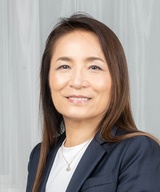
Combustion Simulations Beyond the Hazard of Explosion and Detonation
The words “Explosion" and “Detonation” are negative in terms of safety. They destroy our property and are so-called "physical hazards”. In particular, “detonation" is a dangerous and unpleasant event, and nobody wants to see the results. Scientifically, detonation is one of the premixed combustion phenomena that propagate at hypersonic speed such as Mach number 5. For several decade, detonation has been attractive to the space propulsion research community as a “detonation engine”. Research began with the “pulsed detonation engine (PDE)”, in which detonations occur intermittently to produce thrust for space propulsion. Following the trend for PDE, a new type of detonation engine appeared: the “rotating detonation engine”. Many research institutions succeeded in developing it, and it was eventually launched on a rocket and tested in space. While detonation engines were being developed in many places, CFD with combustion was a powerful tool for elucidating the physics of the newly developed engines. Today, detonation is also an attractive term from an industrial perspective. In the presentation, I would like to introduce the results of a series of simulations of the fundamentals and development research of detonation engines.
Prof. Satoru Oishi (Kobe University)
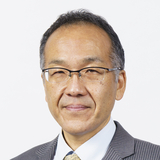
Digital Twins for Smart Disaster Prevention and Automatically Executing Disaster Simulations
To address the increasing frequency and severity of earthquakes and weather-related disasters, it is essential to rapidly and comprehensively predict the damage and impact of natural disasters, utilizing these insights to enhance response efforts. A disaster prevention digital twin provides a powerful solution by integrating cyber and physical spaces, predicting potential damage, and optimizing response strategies based on these predictions. Our team is developing a disaster prevention digital twin that combines social infrastructure data, social dynamics, and real-time sensing data within cyberspace. This digital twin aims to mitigate damage by supporting appropriate evacuation guidance and accelerating early recovery by effectively assessing repair priorities for damaged infrastructure.
Prof. Hiroshi Okada (Tokyo University of Science)

Redefined three-dimensional J-integral and J-integral range ΔJ for finite strain elastic-plastic fracture mechanics (considerations on energy release rate and weakly singular terms)
In this presentation, the redefined three-dimensional J-integral and J-integral range ΔJ as finite strain elastic-plastic crack parameter with considerations on energy release rate and weakly singular terms are presented. The redefined three-dimensional J-integral was proposed by the authors with rigorous considerations on the power of external force and deformation energy stored or dissipated in the solid. In the process of deriving the redefined J-integral, weakly singular terms that were related to the deformation energy dissipation in the vicinity of the crack front were found to arise. They played important roles in the characterization of elastic-plastic crack propagation phenomenon. However, the weakly singular terms have not been discussed in previous studies on the three-dimensional J-integral. Then, the redefined J-integral was extended to the J-integral range ΔJ for cyclic load problems.
Crack propagation analyses both under monotonic and cyclic loads are presented. They reveal that the present redefined J-integral and ΔJ characterize the energy release at and the deformation energy dissipation in the vicinity of the crack front.
Prof. Shabnam J. Semnani (University of California, San Diego)
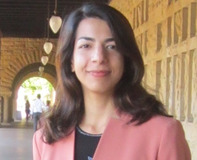
Landslide hazard assessment under changing climate conditions
Rainfall-triggered landslides are widespread natural hazards which take a heavy toll on lives, properties, and infrastructure each year. Estimating the regional evolution of landslide hazard in a changing climate is essential for adaptation planning and risk mitigation efforts. Various data-driven and machine learning based algorithms have been applied to assess landslide susceptibility. However, data-driven methods fail to account for the physical mechanisms behind landslides and are affected by issues such as extrapolation. On the other hand, physics-based models are typically only applicable to a limited region. In this talk, we present the recent advances in data-driven and physics-informed landslide susceptibility assessment techniques as promising tools to investigate landslide susceptibility and its evolution at the regional and national scales to inform decision making and risk mitigation efforts.
Prof. Fei Xu (Northwestern Polytechnical University)
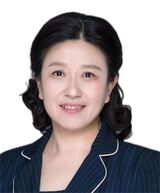
The improvement of SPH method and its applications in the field of civil aviation
In recent years, the Smoothed Particle Hydrodynamics (SPH) method has advanced in algorithms and applications. To improve the computational accuracy, stability and efficiency, several numerical algorithms are proposed. Based on Finite Particle Method (FPM), a specified FPM is derived by matrix decomposition, which possesses simple calculation with high efficiency. A generalized FPM algorithm is studied, which has no extra limit on the number of particles and may approach high-order accuracy. Secondly, a DSFPM algorithm is presented to obtain high accuracy at interfaces among multi-material problems. Further, the idea of SFPM is introduced into Total Lagrangian SPH to describe large deformation of solid.
The above improved algorithms with recent progress of SPH in fluid, such as δ-SPH, GSPH, provide opportunities to solve complex problems in civil aviation. To meet the airworthiness requirements, these improved methods can be used to evaluate crucial and safety problems, such as the water spray of airplane tires running on the contaminated runway, the airworthiness assessments of aircraft ditching, the bird strikes and discrete fragment impact, etc. Furthermore, other Fluid Solid Interaction problems related to the airplane flying, such as oil tank sloshing, oil pump operation can be simulated. As artificial intelligence and machine learning technologies develop, the SPH method will provide an insightful contribution to engineering problems.
Prof. Jun Yan (Dalian University of Technology)
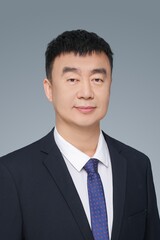
Intelligent design of topology optimization considering physics-related information
Structural optimization design is an effective means to achieve innovative structural design configurations, widely applied in structural design fields such as aerospace, automotive, and marine engineering. However, with the increase of the problem complexity, the number of structural design variables has surged, traditional topology optimization methods face the significant computational challenges. Due to the powerful nonlinear learning and computational capabilities of deep learning algorithms, applying deep learning algorithms to topology optimization design to speed up the topology optimization process has emerged as the most promising new discipline in topology optimization. This paper significantly improves the efficiency of topology optimization by combining deep learning models with traditional topology optimization methods such as SIMP (Solid Isotropic Material Penalty) and MMC (Moving Morphable Component). By incorporating physics-related information (such as principal stress matrices and temperature gradient matrices) into model training, a neural network prediction model based on a small sample set is constructed, yielding highly accurate prediction results. A data preprocessing method and a new form of loss function PMSE (Penalty Mean Square Error) that conform to the data characteristics of the optimization algorithm are proposed to improve the model prediction accuracy for structural boundaries. At the same time, the effects of different input modes on the final prediction results are compared. The results show that the introduction of physical information related to the objective function can effectively improve the prediction accuracy of the model, which provides new ideas for topology optimization methods based on deep learning.
Prof. Zohar Yosibash (Tel Aviv University)
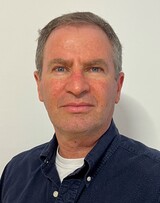
Autonomous finite element analysis of fracture prediction in human bones applied in clinical practice
The prescription of medications for individuals at risk of osteoporotic hip fractures, or the recommendation of prophylactic surgery for patients with femoral metastases, requires reliable, validated, patient-specific finite element analyses (FEAs). Traditionally, these analyses have been challenging to automate due to their complexity, including geometry generation from CT scans, the application of heterogeneous bone material properties, complex failure laws, and physiological boundary conditions.
Recent advancements such as low-dose CT scanning, machine learning, and high-order FEAs with inherent accuracy verification now enable a fully autonomous approach to evaluating bone strength and fracture risk. This new approach, termed autonomous finite element (AFE) analysis, represents a paradigm shift in FEA application.
This presentation introduces a novel patient-specific AFE process for femurs, designed for clinical practice. It encompasses automatic femur segmentation from CT scans using U-Net, automated mesh generation and boundary condition applications based on anatomical markers, high-order FE analysis with numerical error control, and an automatically generated report that clearly assesses fracture risk.
Two clinical applications of AFE will be demonstrated: (a) Quantifying fracture risk in patients with femoral tumors, along with surgical recommendations, and (b) opportunistically identifying patients at high risk for hip fractures.

